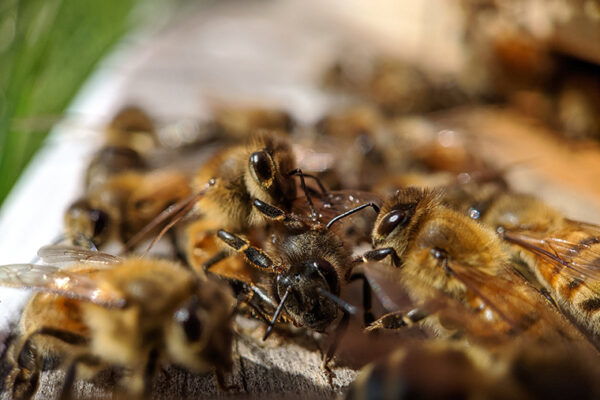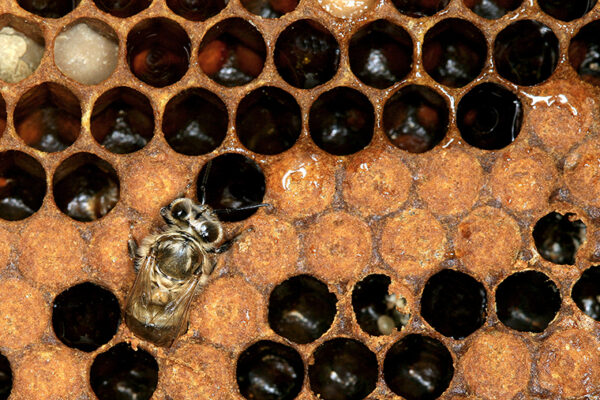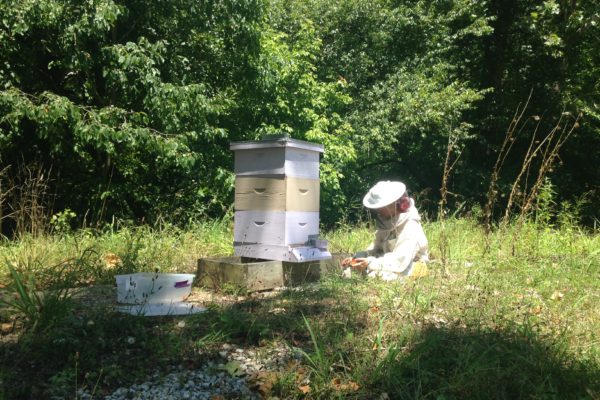Yehuda Ben-Shahar, professor of biology in Arts & Sciences at WashU, uses behavioral, genetic, genomic, biochemical and molecular approaches to decipher the genetic architectures that drive specific behaviors by using the powerful genetic tractability of the vinegar fly, Drosophila melanogaster. Specifically, members of the Ben-Shahar lab investigate how the action of specific genes in distinct neuronal circuits give rise to behaviors such as feeding and mating decisions.
The Lab also conducts research projects about the evolution and genetics of honey bee social behaviors at Tyson Research Center, and on developing genetically-encoded tools for studying neural functions and behavior in non-Drosophila insects species such as the honey bee and the American grasshopper.

Yehuda Ben-Shahar
Professor of Biology in Arts & Sciences
Contact Information
- Phone: 314-935-3484
- Email: benshahary@wustl.edu
- Website: Website
Media Contact
In the media
Beehives Are Held Together by Their Mutual Gut Microbes
Yehuda Ben-Shahar, professor of biology
The Secret Lives of Ants
Yehuda Ben-Shahar, associate professor of biology
Stories
‘Honey bee, it’s me’
New research from Washington University in St. Louis shows that honey bees rely on chemical cues related to their shared gut microbial communities, instead of genetic relatedness, to identify members of their colony.
Rethinking seizures associated with cardiac disease
Research from Washington University in St. Louis finds that mutations of a gene implicated in long QT syndrome in humans may trigger seizures because of their direct effects on certain classes of neurons in the brain — independent from what the genetic mutations do to heart function. The new work from Arts & Sciences was conducted with fruit flies and is published August 8 in PLOS Genetics.
Earning a bee’s wings
New research from Washington University in St. Louis shows that honey bees (Apis mellifera) develop different scent profiles as they age, and the gatekeeper bees at the hive’s door respond differently to returning foragers than they do when they encounter younger bees who have never ventured out before.
Neurogenetics for all
Sophisticated techniques for testing hypotheses about the brain by activating and silencing genes are currently available for only a handful of model organisms. Scientists at Washington University in St. Louis are working on a simplified toolkit that will allow scientists who study animal behavior to manipulate the genomes of many other animals with the hope of accelerating progress in our understanding of the brain.



